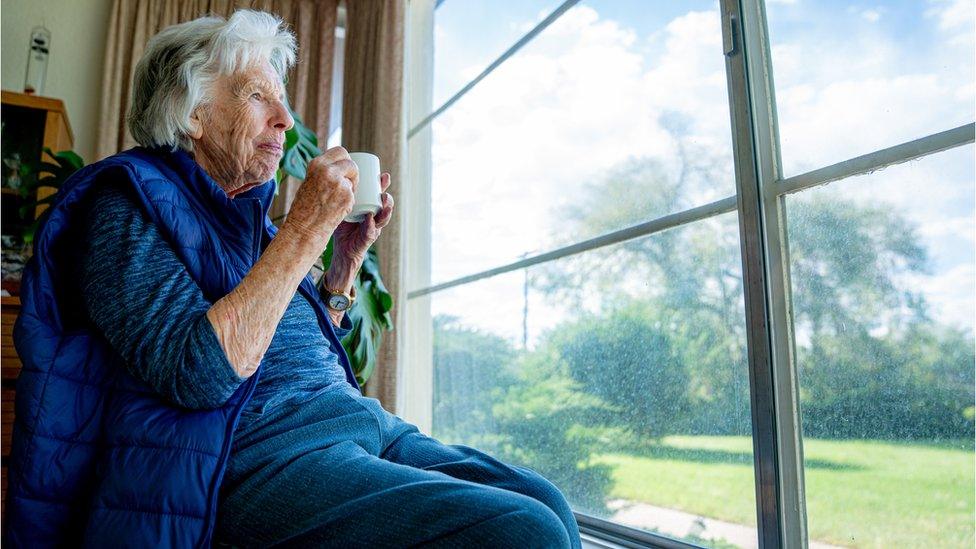Covid-19: NI care home relatives call for answers on Covid tests
- Published
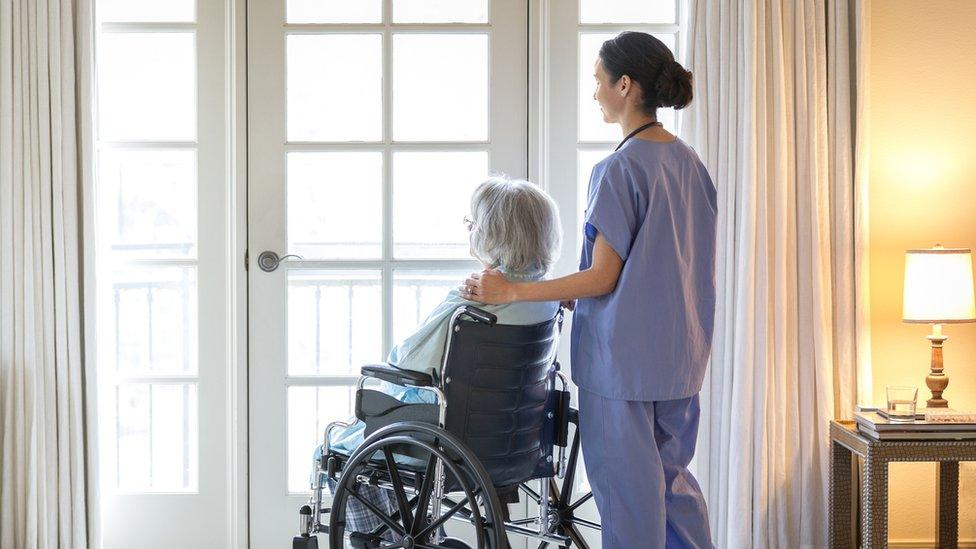
Families of Northern Ireland care home residents want to know why hospital patients were admitted to homes without being tested for Covid-19.
It happened during the early weeks of the pandemic when guidance stated there was "no expectation" hospital patients would be tested before going to a home.
That guidance was dated 3 April, 2020.
On Wednesday, the High Court ruled that UK government policies on discharging untested hospital patients into care homes in England were unlawful.
Two bereaved care home relatives took the case against Public Health England and former UK Health Secretary Matt Hancock.
The ruling has galvanised calls for a "Northern Ireland-specific" inquiry into how coronavirus was managed in local care homes.
'I do feel there were failings'
Campaigner David Clarke, who was not allowed to visit his elderly father's care home during lockdowns, said the lack of mandatory testing put vulnerable residents at risk.
"We were told that we were being kept out to keep Covid out of the homes," he told BBC News NI.
"So if that was the case, then I just can't understand why patients were coming from a hospital environment - which we are told is a high-risk environment - they were being discharged from hospital in a lot of cases not being tested at all or actually being Covid-positive."
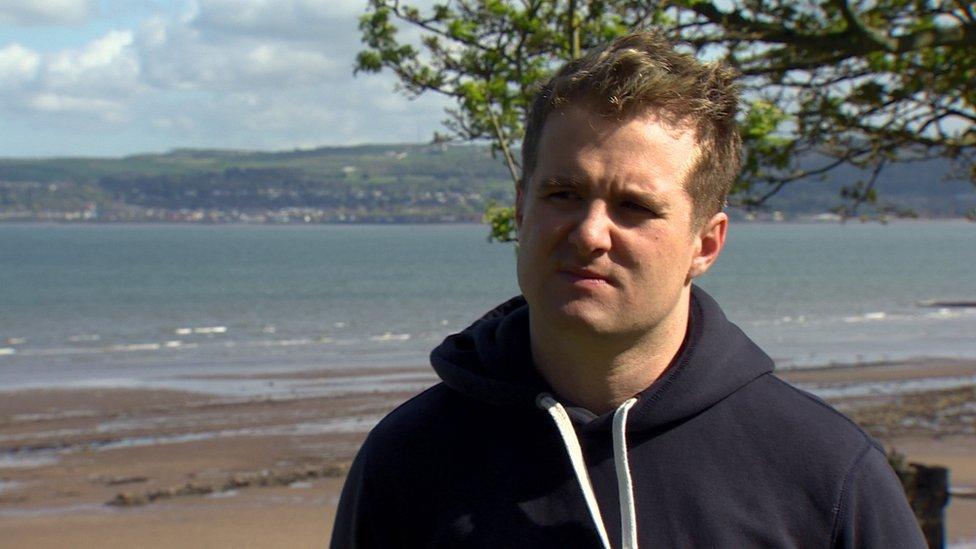
David Clarke is a member of a support group for relatives of Northern Ireland care home residents
He added: "At that time we didn't have vaccines and we didn't have all the infection control measures and Covid was very rife. It was only going to be the case that it was going to spread right through care homes and cause the devastation that it did.
"I do feel there were failings that could have been been prevented and that people's loved ones could still be alive today had it been handled in a much more safe, effective and efficient manner."
In a brief statement, Stormont's Department of Health said: "While this court ruling relates to policy and practice in England, the department will obviously wish to closely consider its findings."


What did the early guidance say?
We can read this in black and white, according to a letter that I have retrieved which dates back to 3 April 2020.
This guidance came from the Health and Social Care Board via the regulator, the Regulation and Quality Improvement Authority (RQIA).
The letter to care home registered providers says: "Can I remind you of previous advice that has been issued via the RQIA?
"What is the guidance for homes accepting discharges from hospital? Is there an expectation that these patients are tested for Covid-19 before they are discharged?"
The answer that is provided is: "There is no expectation that patients are being tested for Covid-10 before discharge from hospital to a care home."
And the advice continues to say that, where exposed, patients or residents discharged to nursing or residential care should be put into isolation for 14 days.
Speaking to several care home owners and managers after Wednesday's ruling, I put that letter to them.
Some of them said they recall a chaotic time when they had to use their own common sense about what was the best action to take when they received discharges.
Obviously, caring for older, vulnerable people was their responsibility, it is their sole aim and objective. But they said they were also aware of what was going on within hospitals.
Hospitals were being pressured to free up beds, to discharge older people as quickly as possible, and they were trying to do their best.
Then of course, care homes had the pressure from families who were unable to see their loved ones so it was a very, very chaotic and confusing time.
Some care home managers relayed to me on Wednesday that they knew routine testing of patients was not really happening 100%.
It did not happen until well into the first wave of Covid and, unfortunately, we know now that was a critical time because the virus was spreading.

Some care home managers were so worried about Covid outbreaks they refused to accept hospital patients in the first wave of the pandemic.
Pauline Shepherd, chief executive of the Independent Health and Care Providers organisation, told the BBC's Good Morning Ulster programme that several homes contacted her after the 3 April guidance was circulated.
"I was getting lots of calls from members expressing concern about the pressures they felt under to take in discharges from hospitals," she said.
"Some of them had facilities that they were able to isolate people and could manage it. Others didn't, and they refused to have discharges into their care homes."
'We need to learn for the future'
Families' calls for a Northern Ireland-specific public inquiry are supported by Northern Ireland's Commissioner for Older People, Eddie Lynch.
"The residents who unfortunately lost their lives in this pandemic, and their relatives left behind, do deserve an inquiry into what happened," he said.
"We know it was a very difficult period, there's no question about that, but we need to look back and see could things have been done differently. And we need to learn for the future as well because we may face another pandemic down the line and we need to be better prepared."
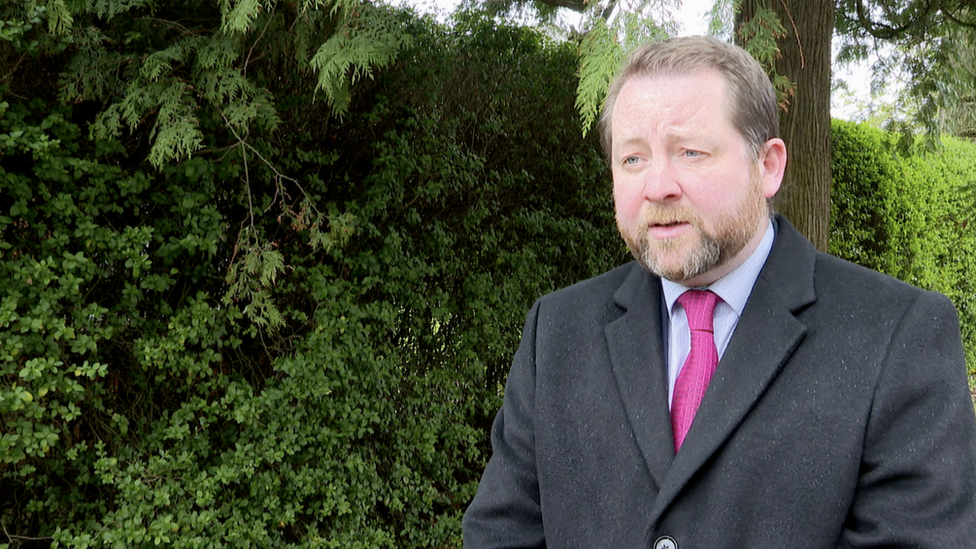
Eddie Lynch said the ruling in England was "significant" and highlighted the need for a local inquiry
The commissioner said that apart from the testing policy, he also had other questions about how the care sector coped with the initial emergency.
He said there were concerns about the lack of personal protective equipment (PPE) in care homes in the early weeks of the pandemic.
Mr Lynch also said there was a "high reliance" on agency staff and concerns had been raised about staff working in care homes where there was a Covid outbreak and then moving to another care setting.
A UK-wide public inquiry into the government's handling of the Covid-19 pandemic is due to begin shortly and its draft terms of reference were published last month.
The Scottish government is also holding its own Covid-19 inquiry and published its terms of reference last year.
Mr Lynch said the ruling in England highlighted the need for Stormont to set up a separate public inquiry.
"We are in a separate health system here compared to Great Britain," he said.
"We have a different situation with regard to how we contract out our social care and I think there is a fundamental question here about how we dealt with our NHS and compare that to how we supported our social care system."
Related topics
- Published27 April 2022
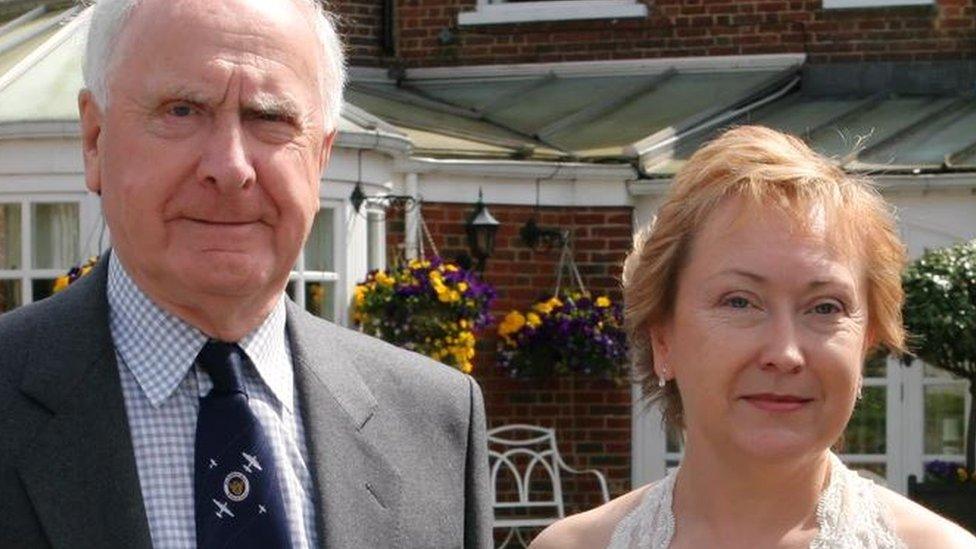
- Published17 February 2022
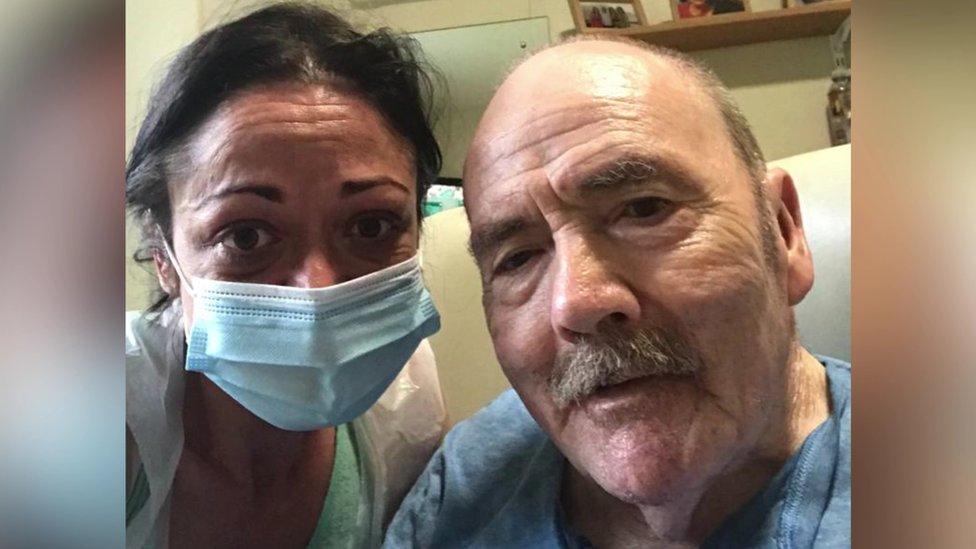
- Published3 January 2022
